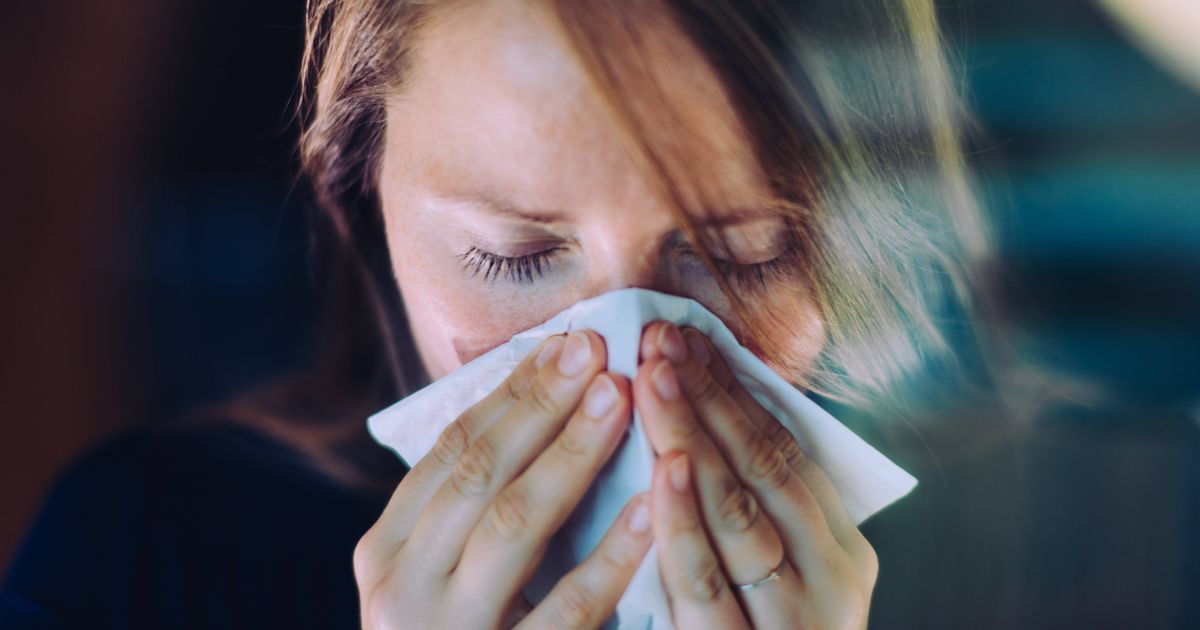Health experts explain the difference in symptoms as pollen levels increase and the new Covid NB.1.8.1 variant surges in UK
07:30, 18 Jun 2025Updated 07:30, 18 Jun 2025
 Experts explain the difference between hay fever and the new Covid-19 variant symptoms(Image: Guido Mieth via Getty Images)
Experts explain the difference between hay fever and the new Covid-19 variant symptoms(Image: Guido Mieth via Getty Images)
The UK battles a surge in hay fever and Covid cases as the Met Office warns of “very high” pollen levels causing distress for millions.
Hay fever and Covid-19, while sharing symptoms such as sneezing, nasal congestion, headaches, and sometimes loss of smell, are distinct health conditions. Allergies to substances like pollen cause hay fever, whereas a viral infection causes Covid-19.
Bupa’s Associate Clinical Director Dr Luke Powles has said: “Despite hay fever being more common during the spring and summer, some people are affected by pollen from March to September.
“This can make it harder to tell if sniffs and sneezes are being caused by an allergy or an infection such as coronavirus.”
Moreover, the situation is exacerbated by the appearance of a new Covid strain, NB. 1.8.1, also referred to as Nimbus.
The new variant has been linked with nearly a 10% increase in hospital admissions linked to Covid, with The Mirror reporting 947 admissions in the week ending May 31, reports Lancs Live.
Health experts note that a key symptom differentiating hay fever from coronavirus is a high temperature – a signal of Covid absent in hay fever.
The NHS advises that this means “you feel hot to touch on your chest or back (you do not need to measure your temperature)”. It may also lead to chills.
Dr Powles has made it clear that a raised temperature is “not likely” to be caused by hay fever.
He explained: “Although a blocked nose due to hay fever can affect your smell or taste, completely losing your ability to taste or smell is more likely to result from coronavirus.”
Moreover, Covid-19 tends to have a more significant impact on overall health.
“Hay fever symptoms aren’t usually serious and, generally, you won’t feel too ill,” he added.
In contrast, Covid-19 can lead to severe illness and its effects may linger for an extended period, sometimes resulting in long Covid.
The NHS points out: “The symptoms [of Covid] are very similar to symptoms of other illnesses, such as colds and flu. Most people feel better within a few weeks, but it can take longer to recover.”
Covid-19 is also associated with gastrointestinal problems, which are not a feature of hay fever. These issues can manifest as nausea, vomiting, and diarrhoea.
The guidance remains to self-isolate and limit contact with others if you or your child show symptoms and either:
According to the NHS, you can resume your “normal activities” once you feel better or no longer have a high temperature.
Typical hay fever symptoms consist of:
- Sneezing and coughing
- A runny or blocked nose
- Itchy, red or watery eyes
- Itchy throat, mouth, nose and ears
- Loss of smell
- Pain around your temples and forehead
- Headache
- Fatigue
Symptoms of Covid can encompass:
- A high temperature or experiencing chills – this implies feeling hot to the touch on your chest or back (there’s no need to take your temperature)
- A new, persistent cough – this refers to coughing excessively for over an hour, or having three or more bouts of coughing within 24 hours
- A loss or alteration in your sense of smell or taste
- Breathlessness
- Feeling fatigued or worn out
- Bodily aches
- A headache
- A sore throat
- A congested or runny nose
- Loss of appetite
- Diarrhoea
- Feeling nauseous or vomiting
Join the Manchester Evening News WhatsApp group HERE
